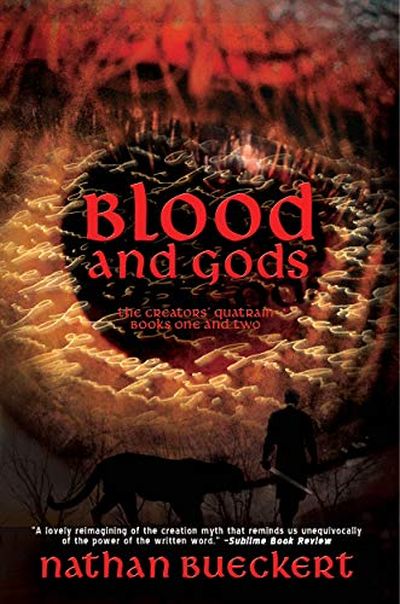Literary rating: ★★
Kick-butt quotient: ☆☆☆
 What I’ll remember about this one is the arc. Not so much of any character, more as to whether or not this would qualify for the site. The story began on solid enough ground, but around the end of the first volume (this omnibus contains parts 1+2), it plummeted well below the threshold needed. I almost gave up reading at that point, but persisted, and the book did rebound with an extended, gory finale in which the heroine and her ally took on what felt like an entire city. Okay, it’s back in. But I’m not happy about it, for reasons I’ll get to in a bit.
What I’ll remember about this one is the arc. Not so much of any character, more as to whether or not this would qualify for the site. The story began on solid enough ground, but around the end of the first volume (this omnibus contains parts 1+2), it plummeted well below the threshold needed. I almost gave up reading at that point, but persisted, and the book did rebound with an extended, gory finale in which the heroine and her ally took on what felt like an entire city. Okay, it’s back in. But I’m not happy about it, for reasons I’ll get to in a bit.
The focus here is Tratalja, a city-state which rules over a wide swathe of countryside. In this world, writing is comparable to magic, and those who practice it without royal authority are subject to summary execution. This takes place at the hands of the Sceyrah, the enforcers of the ruling religion. In training to become one of them is fourteen-year-old Lilija, whose fighting skills, demonstrated in arena exhibitions, have caused her to become popular with the inhabitants – a cause of concern to her masters.
When a tribe of barbarians, the Blood-Eaters, under their young leader Ari, sack the city, Lilija becomes the scapegoat, and narrowly escapes execution, fleeing the city to join forces with Ari. But their meeting… well, let’s just say it doesn’t go well. It was at this point I thought it was done, in terms of review purposes here. However, a new heroine arose thereafter, one possibly even more highly-skilled than Lilija, and she does manage to team up with Ari. Together, they face the threat of a high priest possessed by an evil god, with an unquenchable taste for human sacrifice. It gets a bit messy, though Book #2 does finish in a tidier way than #1. If I’d just had the latter, I’d have been annoyed.
Instead, however, there were still two significant problems. Firstly, the concept that certain people can have whatever they write, come true. It’s basically a massive get out of jail free card, which could be used as an excuse for sloppy writing. I don’t feel Bueckert necessarily does: however, it’s a questionable can of worms to open, especially when apparently done with few limitations. The other issue is the reduction of death, to something which is barely an inconvenience, little more than a spiritual time-out. After one character comes back – even if in a different physical form – then it’s hard for the reader to commit fully, to believing anyone else has ever ceased to be. I feel the story would have been significantly stronger, if other methods had been found to achieve the same plot results. While not devoid of positive elements, they aren’t what I’ll remember, and I don’t think I’ll be bothering with the second half of the series.
Author: Nathan Bueckert (Timothy Frame)
Publisher: Black Rose Writing. available through Amazon, both as a paperback and an e-book
1+2 of 4 in the Creators Quatrain series.




